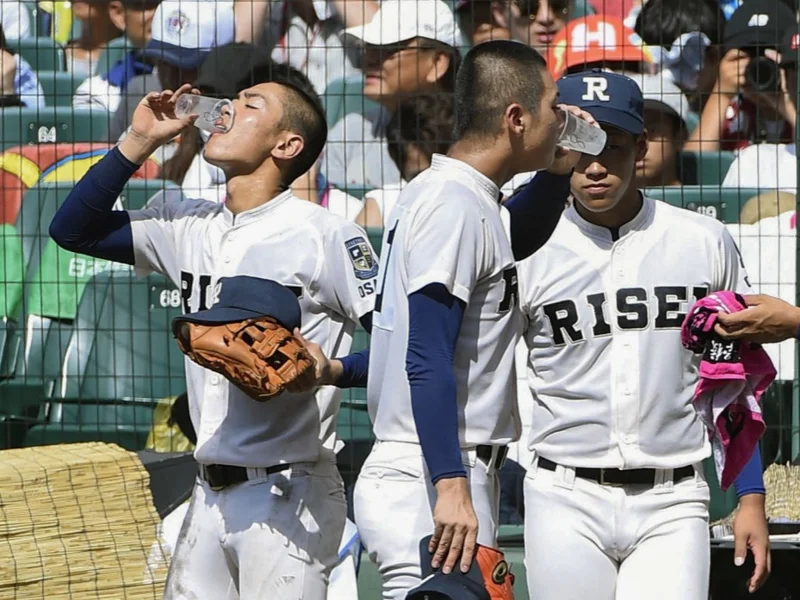Global warming may stop summertime school sports in Japan from 2060s
Without serious efforts to tackle global warming, students in the 2060s or later may no longer be able to engage in extracurricular outdoor sports in summer in most parts of Japan, according to predictions by a research team, Kyodo reports.

In the most pessimistic global warming scenario, the team's heat stress projections showed all or intense outdoor sporting activity would need to be avoided for some time between 3 p.m. and 6 p.m. in July and August in areas apart from the northern main island of Hokkaido.
In Japan, extracurricular activities normally take place in the late afternoon, though the situation may differ during the summer vacation period.
The team from the National Institute for Environmental Studies and Waseda University in Tokyo created a projection model based on weather data including temperature and humidity as well as a measure of heat stress called the wet-bulb globe temperature, which takes into account factors such as wind and solar radiation, in 842 cities in Japan over a 12-year period.
It predicted hourly WBGT heat stress figures in 11 areas across the nation from the 2060s and 2080s, according to scenarios such as when greenhouse gas emissions are drastically cut as well as when emissions are not reduced because of a high dependence on fossil fuels.
In the most pessimistic of cases of global warming, the projected reading was 31 or more, meaning outside sporting activity should be avoided in principle under the country's guidelines, in four regions, covering Shikoku, northern and southern Kyushu, and Okinawa, for some time between 3 p.m. and 6 p.m. in July and August.
A heat stress index at or above 31 roughly corresponds to 35 C or higher in air temperature.
Six areas, from Tohoku to Chugoku, had readings between 28 and 31, meaning intense sporting activity should be avoided.
Between 7 a.m. and 9 a.m., none of the regions had figures of 31 or above, but the projections showed intense sports should be avoided in the same hours in August in all regions apart from Hokkaido.
Takahiro Oyama, researcher at the institute's Center for Climate Change Adaptation, said the results were indicative of how people's daily lives will change as global warming progresses. "We need to start thinking about how future club activities should be."
The annual Koshien national high school baseball tournament has already adopted a two-session system to reduce the negative impact of the summer heat, dividing some of the schedule into morning and late afternoon games.
If the warming of the planet continues, it could affect more than just school sports, leading to time and venue changes, experts said.
Earlier Kazinform reported, global warming continues: March 2025 one of the hottest on record.
